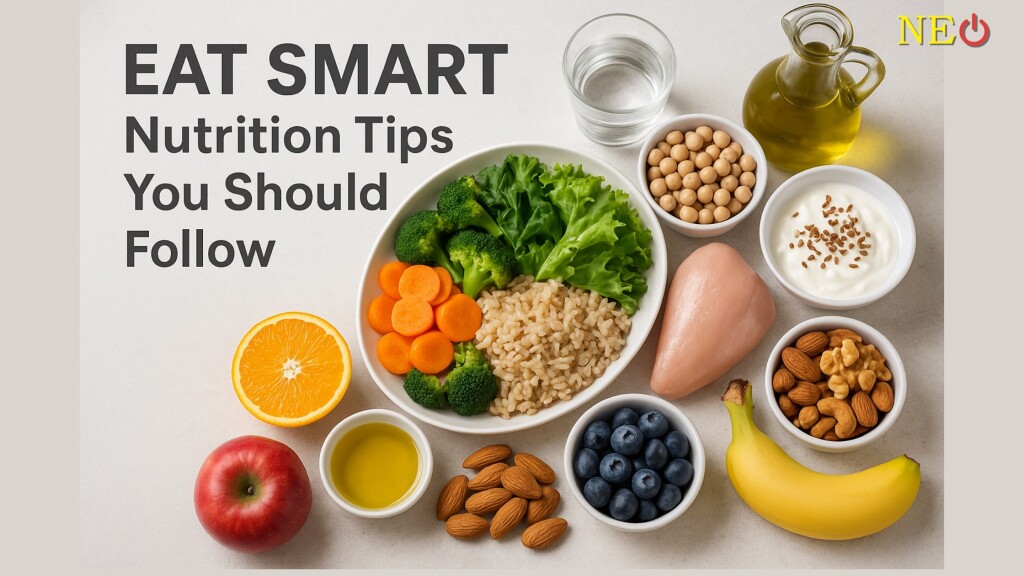In today’s fast-paced world, eating smart is not just a trend—it’s a necessity. With rising stress levels, sedentary lifestyles, and processed foods dominating our plates, making wise nutritional choices can significantly impact your overall health and well-being. Eating smart doesn’t mean going on strict diets or giving up your favorite foods. Instead, it’s about making balanced, informed decisions that fuel your body and mind.
Here are some essential nutrition tips you should follow to eat smart and stay healthy:
1. Start with a Balanced Plate
A smart plate should include a mix of:
Fruits and vegetables (half your plate)
Whole grains like brown rice, oats, or whole wheat
Lean proteins such as eggs, chicken, fish, tofu, or legumes
Healthy fats from nuts, seeds, and olive oil
Eating a variety of these nutrients ensures your body gets all the vitamins and minerals it needs to function optimally.
2. Don’t Skip Breakfast
Breakfast kickstarts your metabolism and provides energy to begin your day. Choose high-fiber, high-protein options like:
Oatmeal with fruit and nuts
Whole-grain toast with eggs
Smoothies with Greek yogurt and spinach
Skipping breakfast often leads to overeating later in the day.
3. Stay Hydrated
Many people mistake thirst for hunger. Drinking enough water throughout the day supports digestion, improves skin health, and helps regulate body temperature. Aim for 8–10 glasses daily, and more if you’re active.
4. Limit Sugar and Salt Intake
Excessive sugar and salt can lead to serious health problems like diabetes, high blood pressure, and heart disease. Read food labels, avoid sugary drinks, and opt for natural sweeteners like honey or jaggery in moderation.
5. Practice Mindful Eating
Avoid eating in front of screens or while multitasking. Chew slowly, savor your food, and listen to your body’s hunger cues. This habit helps prevent overeating and improves digestion.
6. Snack Smart
Instead of chips or cookies, reach for:
Mixed nuts
Roasted makhana
Fresh fruit
Yogurt with seeds
Healthy snacks keep your energy levels up and cravings down.
7. Avoid Crash Diets
Fad diets often lead to temporary results and long-term harm. Instead, aim for gradual, sustainable changes. Smart eating is a lifestyle, not a temporary fix.
8. Plan Your Meals
Meal planning saves time, reduces food waste, and helps you stick to your nutritional goals. Prep meals in advance and carry healthy snacks to avoid junk food temptations.
9. Read Nutrition Labels
Understanding what you’re eating is key to smart eating. Look for items low in added sugars, saturated fats, and sodium. Check serving sizes carefully.
10. Include Superfoods
Incorporate nutrient-dense foods like:
Spinach
Berries
Turmeric
Flaxseeds
Quinoa
These foods are rich in antioxidants, fiber, and other health-boosting compounds.
Final Thoughts
Eating smart is about progress, not perfection. Even small changes—like drinking more water, adding veggies to your meals, or reducing junk food—can make a big difference over time. Remember, your body is a reflection of how you fuel it. So choose wisely, eat mindfully, and make nutrition a priority in your lifestyle.









